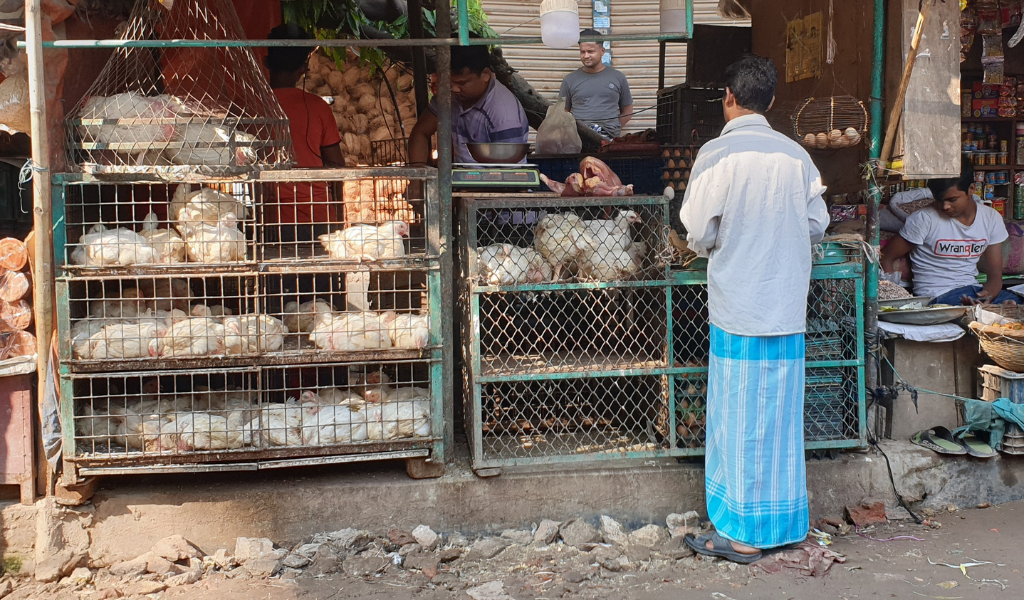IDS is leading one of 12 new teams receiving UK Research and Innovation (UKRI) funding to tackle infections.
The ‘Zoonotic influenza preparedness: a transdisciplinary One Health approach’ (ZIP) project seeks to develop new ways of thinking about the risk factors for bird flu (avian influenza), a disease which causes devastating losses for farmers and also has pandemic potential.

The interdisciplinary project aims to develop a collaborative modelling approach to offer a better understanding of the biological, social, economic and ecological systems from which risks for bird flu might develop on poultry farms in Bangladesh, Vietnam and the UK.
This is essential knowledge to tackle the constant threat that bird flu presents, particularly in South and Southeast Asia where the circulation on poultry farms of the virus that causes the disease is continual and high, resulting in a constant threat to rural livelihoods and food security.
The disease in birds can also lead to local disease outbreak in people if the virus jumps the species barrier. As the bird flu virus mutates very rapidly, there is also the ever-present threat that a new viral strain will emerge that is transmissible between people, with the potential for a global pandemic.
One Health approach
A One Health approach is increasingly used for research and practice related to diseases such as bird flu that transmit from people to animals (zoonoses). One Health is an approach which understands that human, animal, environmental and ecosystem health are interlinked and as such it seeks solutions to complex health challenges which embrace all these areas.
However, One Health has been criticised for being insufficiently accommodating of non-human health perspectives, for example a consideration of the economic and social constraints within which livestock production occurs. There is an increased demand for an inclusive transdisciplinary approach for the research and practice of One Health.
The ZIP project, which will be led by Dr Syed Abbas and Dr Ayako Ebata, will build upon earlier work and research collaborations, including the GCRF One Health Poultry Hub and ESPA-funded Dynamic Drivers of Disease in Africa Consortium, that applied interdisciplinary collaborative modelling and systems thinking approaches to zoonoses.
ZIP partners include Chattogram Veterinary and Animal Sciences University, Bangladesh; University of Cambridge, UK; International Livestock Research Institute; University of Surrey, UK; University of Sussex, UK; and Vietnam National University of Agriculture. The team aims to develop a methodological approach to conduct transdisciplinary ‘collaborative modelling’ which can examine the connection between economic and health risks.
Syed Abbas, Research Fellow, Institute of Development Studies, said:
“Zoonotic influenzas are driven by interactions of social, biological and environmental drivers. Therefore, solutions to understand and address these require a transdisciplinary approach. In the ZIP project, we intend to develop the methodological framework that allows researchers from different disciplines to work together and address practical challenges as proposed by people whose lives and livelihoods are impacted by zoonotic influenza.”
Ayako Ebata, Research Fellow, Institute of Development Studies, said:
“We are looking forward to working with our partners. This project builds our relationships built over many years, and we believe that these innovative, trans-disciplinary approaches are only possible based on the productive relationships nurtured in previous collaborations.”
The UKRI funding is for 12 months.
